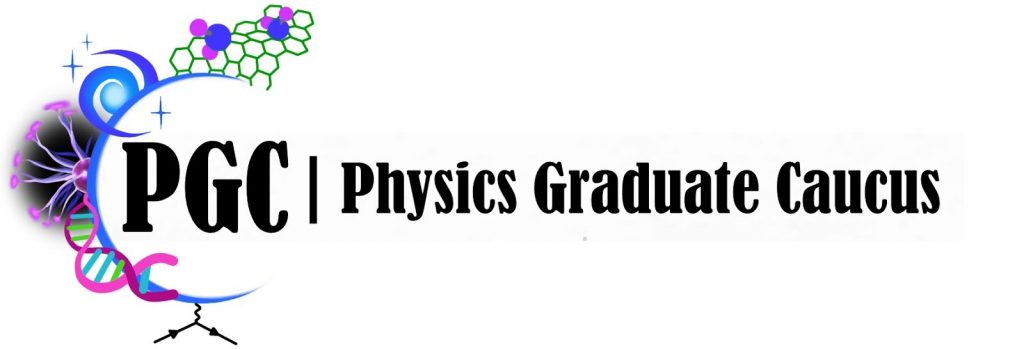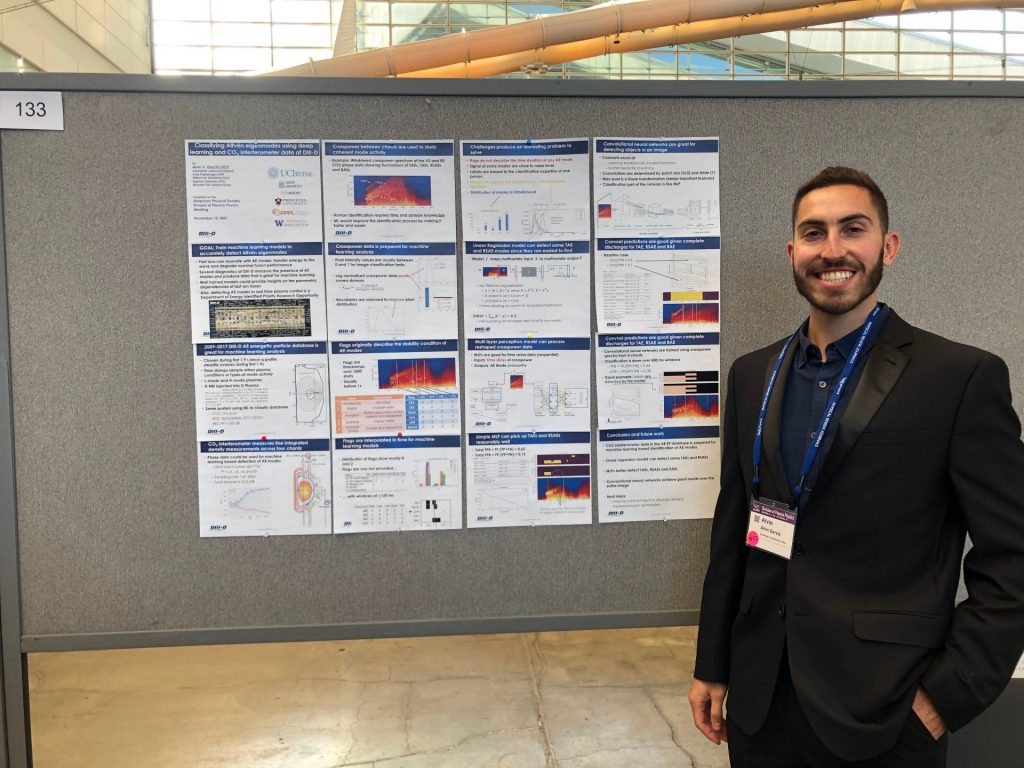Alvin Garcia is a 5th year Plasma Ph.D. student who was recently awarded the prestigious U.S. Department of Energy (DOE) Office of Science Graduate Student Research fellowship (SCGSR) for his work using machine learning to classify plasma wave modes in experimental data produced at the DIII-D National Fusion Facility. Through the fellowship, Alvin is provided with access to the expertise and resources available at DOE national laboratories. The DOE Office of Science uses the SCGSR to fund outstanding graduate students to work on projects that are of significant importance to the Office of Science and address societal challenges at national and international scale. This fellowship recently awarded just 64 students across the U.S. along with Alvin and has only had 765 U.S. graduate awardees since 2014.
Alvin said he first learned about the opportunity when Princeton University Professor Egemen Kolemen sent him a notification about the program and encouraged him to apply. Kolemen’s team heard about Alvin’s machine learning work and wanted to collaborate with him in October 2020. A month later, Kolemen contacted Alvin about the SCGSR fellowship. Alvin said that the application process was interesting since this was his first time developing a proposal from his own vision during a busy week. Since Alvin found out about the program a few days prior to the submission deadline, he had to focus intensely to write the entire proposal from scratch. However, the submission deadline overlapped with his poster presentation on a different project at the American Physical Society (APS)–Division of Plasma Physics Virtual Meeting. He recalls that juggling APS and the application during the same week was intense. But due to Alvin’s perseverance and hard work, he received the honor with only 64 other students in the entire U.S.
The project Alvin works on for SCGSR involves an in person visit to the Princeton Plasma Physics Laboratory to work in the Plasma Control Machine Learning Group. For his project, Alvin modified a labeled DIII-D dataset prepared by Professor Heidbrink a few years ago for machine learning (ML) analysis. Effectively, he uses ML to model the plasma environment through multilabel-multiclass imbalanced image classification. Alvin hopes the model could be implemented into plasma control systems that help mitigate undesirable plasma conditions at DIII-D. Alvin also hopes to gain insights into interesting fast-ion physics that can be achieved through these ML methods.
This is not the first major fellowship granted to Alvin. He was previously awarded the UCI MAPS fellowship after he was encouraged to apply during his first year by UCI alumni Dr. Luke Stagner. When asked about applying to fellowships, Alvin thinks it is best to focus on doing the research, networking, coursework, and outreach that is required to produce a strong application. He says that the right opportunity will eventually come, and adequate preparation will make you ready for it. He says in order to maintain a good work-life balance and stay efficient, he uses a calendar and writes to do lists for everything.
Alvin’s research at the UCI Plasma Physics Department involves using magnetic confinement fusion energy (MFE) as the best option for limitless, safe, and renewable energy in a sustainable future. He wanted to join an experimental research group when he started at UCI, and he says that Professor Heidbrink’s research enterprise was the right match professionally and personally. Although Alvin says his prior experience in plasma physics was nearly negligible at the start, he was determined to learn and started working as a GSR in his group during the winter quarter of his first year. Now, near the end of his Ph.D., Alvin has made many contributions to the fusion energy community. Currently, Alvin is working on two projects: 1) Classifying Alfvén eigenmodes using deep learning and CO2 interferometer data from DIII-D, and 2) Conceptual design of DIII-D experiments to diagnose the lifetime of spin polarized fuel. Outside of research, Alvin enjoys playing soccer. He has played soccer his entire life. Currently, he is a winger on the UCI Men’s Club Soccer team, captain of an Intramural Team, and member of a Pick-Up Soccer Group.
After graduation, Alvin says his ideal first job would be to continue building machine learning models that tackle fusion energy problems. There has been a large increase in private fusion firms since he started grad school, and he finds it encouraging to see private funding trends go up in fusion energy. Since he has developed strong interpersonal skills and enjoys leading teams, Alvin hopes to grow with the fusion energy industry and become a leader in sustainable nuclear fusion in the future


